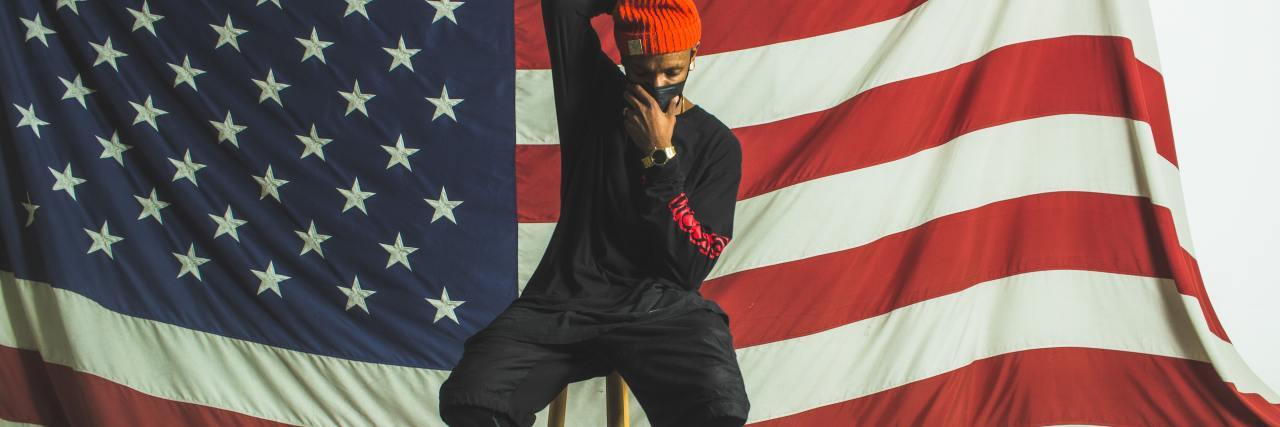An Activist-Therapist's 15 Affirmations for Hope Amidst COVID-19
As an activist-therapist whose work is guided by the feminist principle “the personal is political,” I’m keenly aware of the emotional toll of not only pandemic anxiety due to the coronavirus (COVID-19) — new-to humans virus that causes respiratory infection and can lead to serious or fatal health complications — but also the sociopolitical context driving this public health crisis. Right now, a good number of Americans are feeling overwhelmed by a myriad of complex feelings: exhaustion from breaking news; powerlessness in response to financial precarity and the scarcity of resources; pressure from employers and schools to remain productive; and betrayal and disillusionment about our government’s slow action. Compounded with this constellation of stressors is anticipatory grief, contagion or health anxiety, cabin fever and isolation from social distancing.
However, arguably the most stressful part of surviving COVID-19 — for working people, at least — is the realization that “going back to normal” means history could repeat itself, thus retraumatizing us. Consequently, this pandemic has forced American workers to reckon with a sober reality check that many have preferred to numb or remain in denial about, until now: the ugly truth that the “American Dream” of financial security and stability could perhaps always be out of reach, particularly when natural disasters undermine our hard work. This pandemic’s spiraling death toll, and its disruption of our daily lives, have forced many Americans into an awakening of critical consciousness about the ways in which America’s individualistic brand of patriotism serves to mask corruption, inequity and a profit-over-people national ethos.
To be sure, the most disenfranchised, exploited and marginalized Americans have long been aware that U.S. schools offer an incomplete political education that intentionally inculcates poor and working Americans with the self-sabotaging conviction that any form of an economic safety net constitutes a crutch or handout. Yet, for the first time in forever, the majority seems hyperaware of the pressure of survival under capitalism, and the dire need for an approach to addressing societal problems that is humane and preventative, not simply eleventh-hour and reactive. Moreover, despite how moving it’s been to witness the recent surge in celebrity philanthropy, corporate social responsibility and mass solidarity with “essential workers” on the frontlines, many of whom are often underappreciated or invisibilized, the fact remains that our collective sacrifice compensates for a government that largely devalues our humanity.
The bottom line is that if our legislators ceased extending tax breaks to banks and billionaires, our basic survival needs — food, functional housing and healthcare — wouldn’t need to be tied to employment or a company’s inhumane sick leave policies. For many, this harsh epiphany, along with the fact there’s not yet a light at the end of the tunnel, has been a bitter pill to swallow. As a result, many of us are fretting over where we go from here, especially with election season nearing. Here are a few affirmations I penned to help myself and others weather this storm, and console ourselves as we navigate our way through uncharted territory ahead.
1. Feeling emotionally exhausted as I process the constant flux of this crisis only means I am concerned, compassionate and humanly vulnerable.
2. I rebuke the capitalistic conditioning that drives self-shaming, whenever I prioritize much-needed rest over grind culture and productivity.
3. My inability to focus or stay on task is my system’s natural response to being overwhelmed, and I only dehumanize myself by pathologizing how I adapt.
4. Mitigating my distress with good news, joy, pleasure and self-care is a healing act of self-preservation, not self-indulgence.
5. Small contributions to my community and within my networks are helpful and meaningful, even if I’m not on the frontlines.
6. Muting pandemic-related posts for the sake of my anxiety, or altogether “unplugging,” doesn’t suggest I’m apathetic, disengaged, or self-centered.
7. My method of staying up-to-date with news can differ from everyone else’s.
8. Relapsing into maladaptive coping mechanisms is OK, as long as I consult my own accountability plan, and/or am honest with my accountability buddy.
9. Missing the physical touch or presence of others doesn’t make me needy.
10. I’m never alone, though I may feel forgotten about while social distancing.
11. COVID-19 recoveries are happening every day, and there is a collective effort beyond my awareness that will see us through.
12. I’m allowed to feel simultaneously fortunate/grateful and miserable.
13. Reaching out for help with my financial struggles takes bravery and radical vulnerability.
14. People can relate to my anxiety, existential dread, fear, grief and hopelessness more than I presume, and if/when I open up to others, I’ll be validated.
15. Adjusting to change is difficult, but a new, better “normal” is underway, and my role in bringing it to fruition matters immensely.
Struggling with anxiety due to COVID-19? Check out the following articles from our community:
- If I Get COVID-19 It Might Be Ableism – Not the Virus – That Kills Me
- I’m Afraid I’ll Be Told to ‘Sacrifice’ My Health for COVID-19 Patients
- The Problem With Saying ‘Only’ the Elderly and Immunocompromised Will Be Affected by COVID-19
- How Can You Tell the Difference Between Anxiety and COVID-19 Symptoms?
- 7 Things to Do If Social Distancing Is Triggering Your Depression
- What to Do If the Coronavirus Health Guidelines Are Triggering Your Anxiety or OCD
Photo by Judeus Samson on Unsplash

